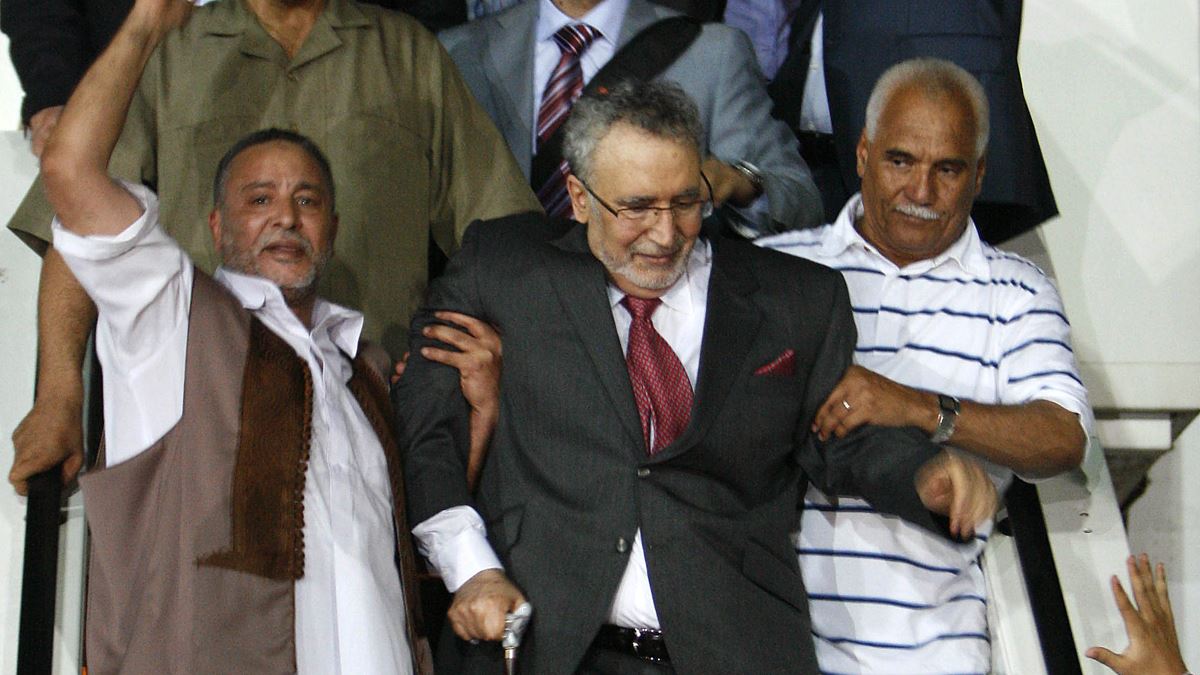The Lockerbie Bombing

Megrahi after his return to Libya in 2009
On 21 December 1988 the 259 passengers and crew members on scheduled Pan Am Flight 103 flight from Frankfurt to Detroit, via London, were killed when their aircraft was destroyed by a bomb over Lockerbie in Scotland.
The authorities immediately pointed the finger of suspicion at the regime of Colonel Muammar Gaddafi of Libya. Three years later, following the decision of a specially convened Scottish criminal court, Abdelbaset al-Megrahi, the head of Libyan Arab airlines security, was convicted of 270 counts of murder and sentenced to life imprisonment.
From the start, the proceedings of the court, which had been convened at Camp Zeit in The Netherlands, invited scepticism. Much of the prosecution evidence had been discredited during the course of the trial. The case largely hinged on the provenance of the altimeter that triggered the bomb. The key witness, Ulrich Lumpert, an employee at a Zurich company that made devices of a kind known to have been sold to Libya, identified a fragment from one such device which was said to have been found in the aircraft wreckage. He later admitted to having stolen the device and passed it to a Lockerbie investigator and to have lied about the matter in court. Separately, Megrahi’s co-defendant, Lamin Khalifah Fhimah, was found not guilty after it was established that he was in Sweden at the time.
Robert Black, a senior lawyer responsible for devising the format of the Lockerbie hearing, described Megrahi’s conviction as the “biggest miscarriage of Scottish justice in 100 years.” Among the growing number calling for Megrahi’s release were several relatives of those killed in the disaster who believed that the authorities should pursue other lines of inquiry, as well as Nelson Mandela, the Church of Scotland, the law faculties of Scottish universities and the UN’s representative at the trial. In 2001, when WorldPR first became involved, Megrahi’s appeal against conviction was dismissed.
In 2007 Megrahi was once again granted leave to appeal, amid leaks emanating from the Scottish Criminal Cases Review Board that it was likely to hear the case again. Megrahi decided to abandon the appeal because this could have jeopardised his prospect of being moved to Libya under a prisoner transfer scheme. Just two days later Megrahi, who was said to be suffering from terminal cancer, was released on compassionate grounds, having served just eight years in jail.
There appears to be little doubt that the release, in which the Scottish government connived, was part of the so-called “Deal in the Desert” struck by Tony Blair with Colonel Gadhafi in 2004 in the knowledge that Megrahi was innocent. After all, no British government would have released Megrahi if it – and its closest ally the United States – had truly believed him to have killed 270 innocent civilians, however ill he might have been.
Doubts about the soundness of Megrahi’s conviction have grown still further since that time, but the true story of Pan Am Flight 103 remains shrouded in mystery and official disinformation. The most probably scenario is that the terrorist outrage was committed by Syrian militants acting on a $10 million bounty offered by the Iranian government to avenge the accidental shooting down of an Iranian passenger jet by the warship USS Vincennes months earlier, killing 290 people. At the time, dramatic events were unfolding in the Middle East and the truth seems to have fallen victim to expedience. In 1990, Syria committed 14,500 troops to the US-led coalition against Iraq and its participation in the alliance was considered crucial. There was parallel interest in diverting blame from Iran in order to protect secret and delicate negotiations by the Bush administration over western hostages.
Whatever the truth of the cover-up that ensued, it seems certain that Abdelbaset Al-Megrahi, and the families of the victims of Flight 103, fell victim to a miscarriage of justice. Commissioned by the international team of lawyers working for the Libyan government, WorldPR worked to draw the attention of the international media and opinion formers to the many weaknesses, inconsistencies and contradictions in the prosecution case against Megrahi. It did so after its own research convinced it that Al Megrahi – who never wavered in his protestations of innocence – was indeed innocent. It is proud to have done so: there is little doubt that public opinion was a major factor in his release.
